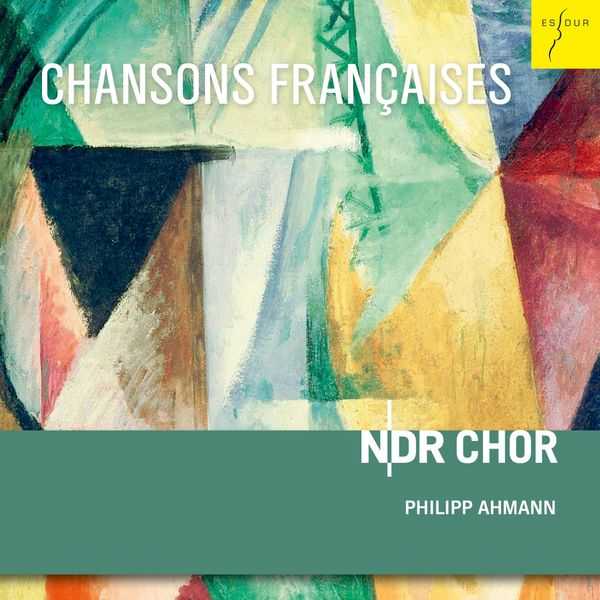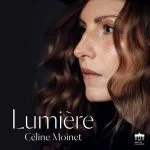

Composer: Jean Absil, Claude Achille Debussy, Paul Hindemith, Darius Milhaud, Francis Poulenc, Maurice Ravel, Charles Camille Saint-Saëns, Philippe Schoeller
Performer: NDR Chor
Conductor: Philipp Ahmann
Format: FLAC (tracks)
Label: Es-Dur
Catalogue: ES2074
Release: 2018
Size: 616 MB
Recovery: +3%
Scan: cover
Debussy: Trois chansons de Charles d’Orleans
01. I. Dieu! qu’il la fait bon regarder!
02. II. Quand j’ay ouy le tabourin
03. III. Yver, vous n’estes qu’un villain
Hindemith: Six Chansons
04. I. La biche
05. II. Un cygne
06. III. Puisque tout passe
07. IV. Printemps
08. V. En hiver
09. VI. Verger
Absil: Le Bestiaire – Cinq petites pièces pour quatuor vocal mixte, Op. 58
10. I. Le dromadaire
11. II. L’écrevisse
12. III. La carpe
13. IV. Le paon
14. V. Le chat
Milhaud: Quatrains Valaisans, Op. 206
15. I. Pays, arrêté à mi-chemin
16. II. Rose de lumière
17. III. L’Année tourne
18. IV. Chemins qui ne mènent nulle part
19. V. Beau papillon
Poulenc: Sept Chansons
20. I. La blanche neige
21. II. À peine défigurée
22. III. Par une nuit nouvelle
23. IV. Tous les droits
24. V. Belle et ressemblante
25. VI. Marie
26. VII. Luire
Saint-Saëns: Deux Choeurs, Op. 68
27. I. Calme des nuits
28. II. Les fleurs et les arbres
29. Schoeller: Cantate Isis pour basson et choeur mixte
Ravel: Trois Chansons
30. I. Nicolette
31. II. Trois beaux oiseaux du paradis
32. III. Ronde
”Chansons Francaises”, the fourth CD recording by the NDR choir under the direction of Philipp Ahmann for the label ES-DUR, is dedicated to the colourful palette of French choral music.
Under the title “Chansons Francaises”, the French tonal artists Jean Absil, Claude Debussy, Darius Milhaud, Francis Poulenc, Maurice Ravel and Camille Saint-Saens encounter their German colleagues Paul Hindemith and his contemporary compatriot Philippe Schoeller. This highlights exciting connections and relationships of a stylistic, musical and also a biographical nature.
Paul Hindemith’s Six Chansons captivate with their brevity and pay homage to the chorus chanson of Hindemith’s beloved French music. The verses set to music by Hindemith for his Six Chansons were written by Rainer Maria Rilke in the Swiss canton of Valais, where the composer Darius Milhaud from southern France was also staying in the summer of 1939. Just as the choir director Georges Haenni asked Hindemith for those chansons, he also turned to Milhaud, who also chose Rilke verses for the Quatrains Valaisans (Wallisian quatrains).
In addition to the Sept Chansons written by Francis Poulenc in 1936 and based on the poems of Apollinaire and luard, the CD also includes the Trois Chansons de Charles d’Orleans written at the beginning of the 20th century by Debussy (1908) as well as the Trois Chansons by Maurice Ravel (1914/15). The two choral pieces, op. 68 – written toward the end of 1882 – are a special feature in Camille Saint-Saens’ complete oeuvre, opening up a depth of expression that to this day has been denied to the creator of the “Carnival of Animals.” In presumably self-composed verses he describes Les fleurs et les arbres (The Flowers and the Trees) and sets the very intimate mood of the Calme des nuits (Silence of the Night) against the harshly noisy everyday life. The choral cycle Le Bestiaire by the French-speaking Belgian composer Jean Absil from 1944 moves harmoniously within the tonal boundaries in which Milhaud and Poulenc composed, but enriched as with those with sounds from the realm of jazz and popular music. Philippe Schoeller belongs to the French avant-garde. His piece Cantate Isis for bassoon and mixed choir, completed in 2002, had its German premiere in October 2013 with NDR.



